#be brave like ukraine
Text
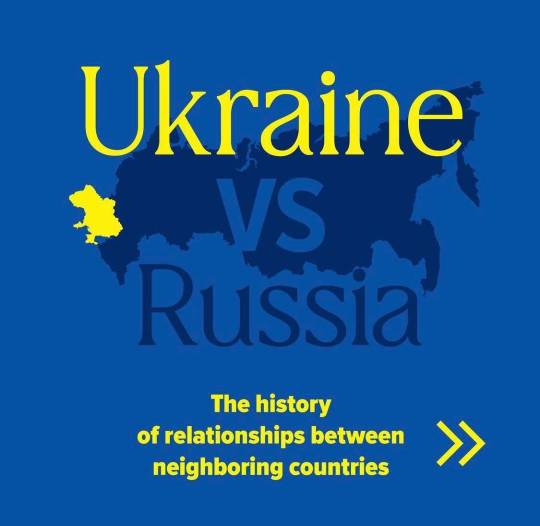

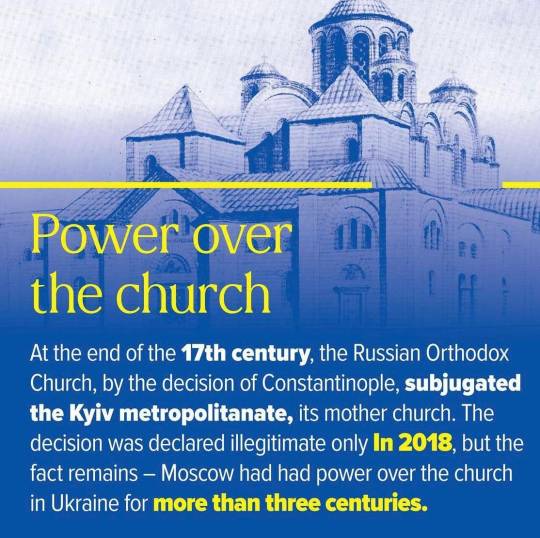
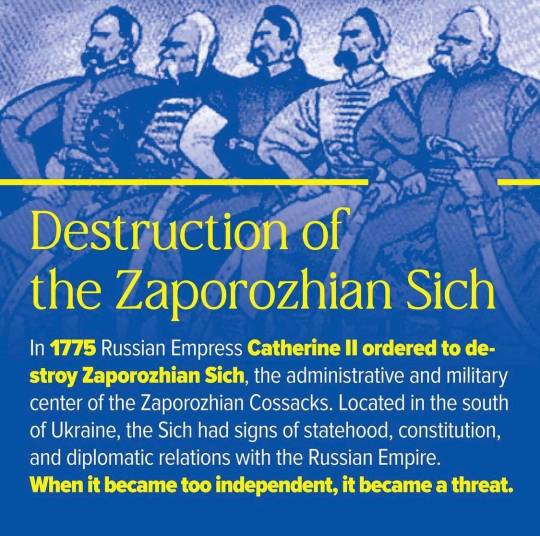
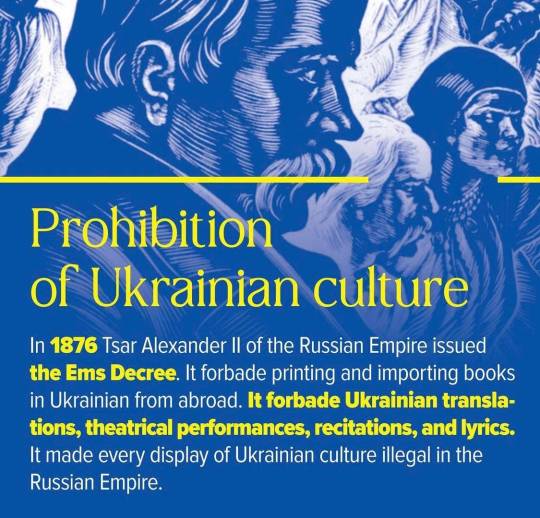
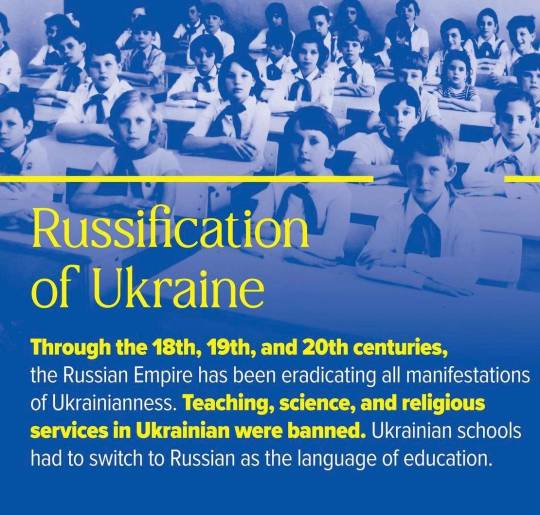
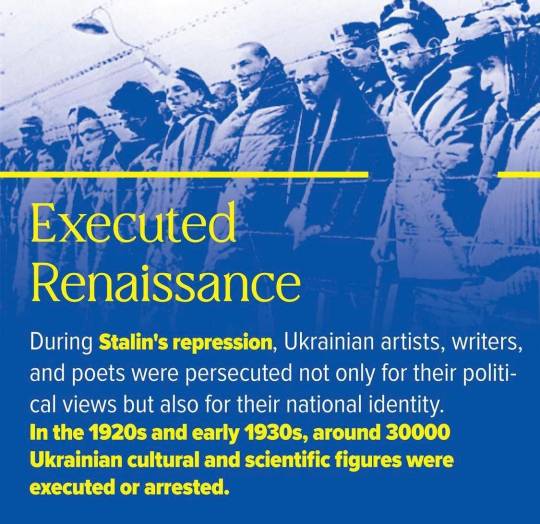
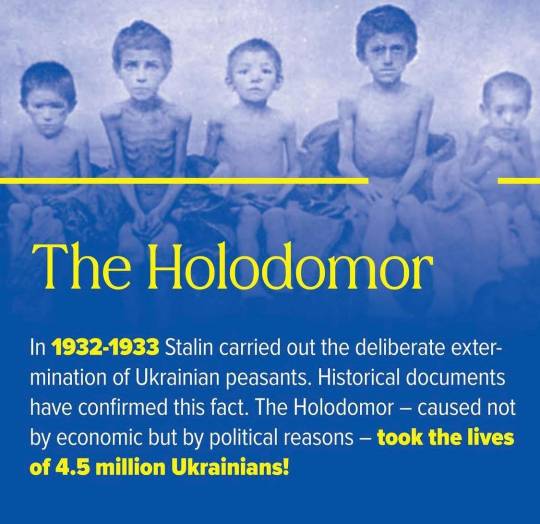
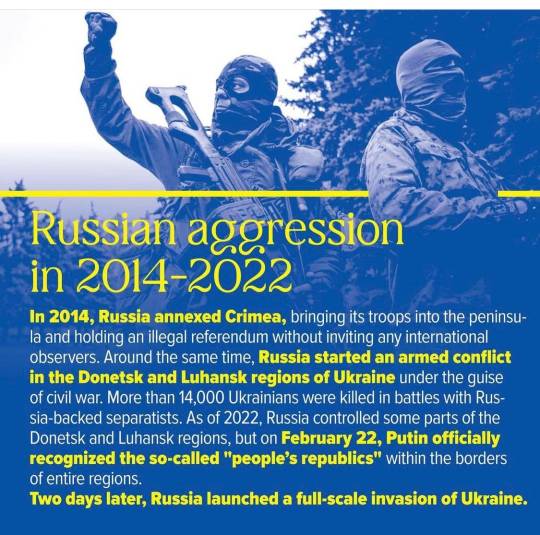
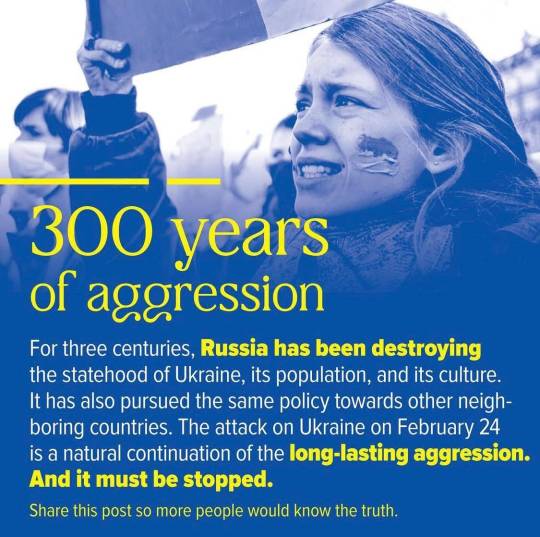
#ukraine#Україна#Россия#russia#russian colonalism#russian imperialism#russian mir#русский мир#colonialism#imperialism#history#day of remembrance#ukrainian history#ukrainian resistance#russian history#stand with ukraine#be brave like ukraine#russia ukraine#russian invasion of ukraine#stop russian aggression#stop war
910 notes
·
View notes
Text
Is there anything that can scare us? No, it isn't. Is there anyone who can stop us? No, it isn't.Because we are all together.This is what we are fighting for. One for each other🇺🇦
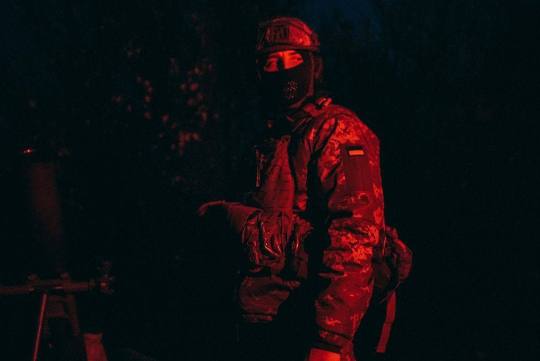

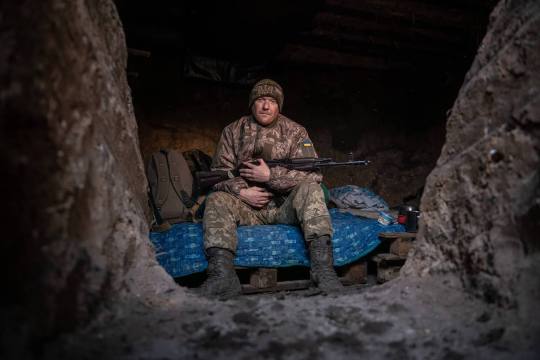
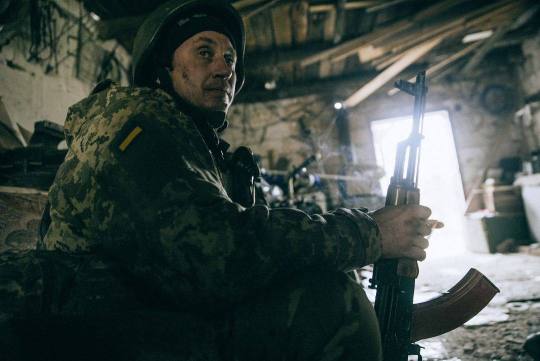
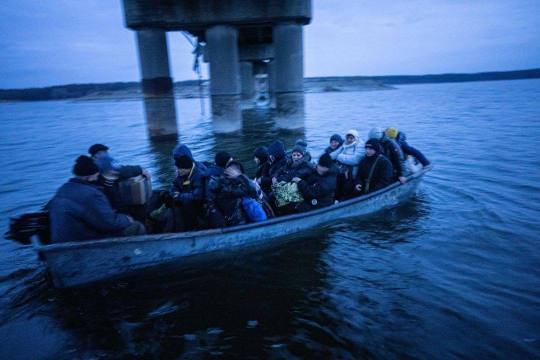
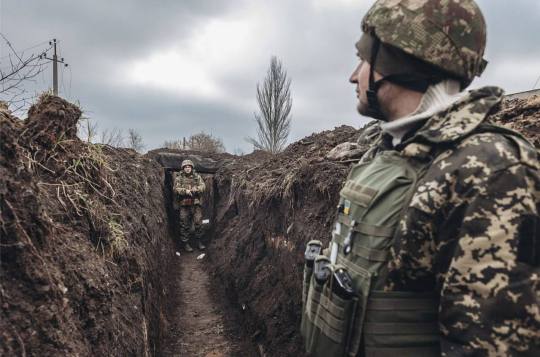

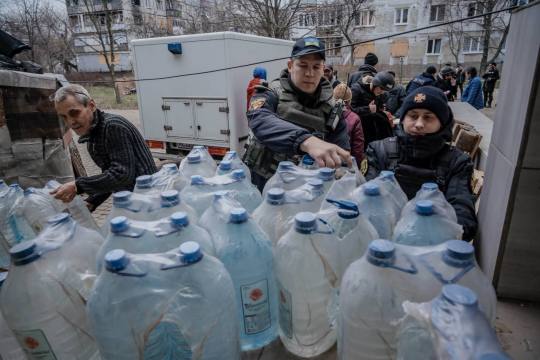
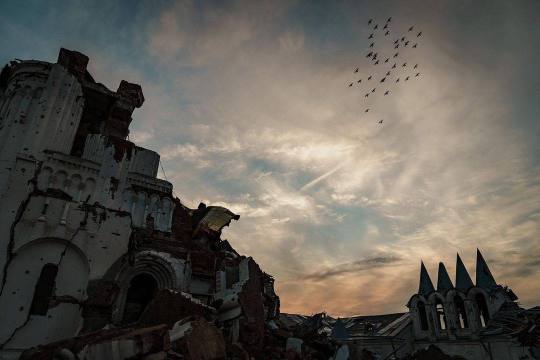
#russian invasion#war in ukraine#ukrainians#ukraine#ukraine war#ukraine won't give up#ukraine will win#arm ukraine#ukrainian armed forces#pray for ukrainian soldiers#pray for ukrainian armed forces#pray for ukraine#pray for ukrainians#war#war 2022 2023#be brave like ukraine#brave ukraine#ukraine under attack#stop war#russia is a terrorist state#stand with ukraine#support ukraine#ukrainians on tumblr#slava ukraini#слава героям україни#glory to ukraine#glory to the heroes#ukraine is my home#free ukraine#freedom for ukraine
94 notes
·
View notes
Text
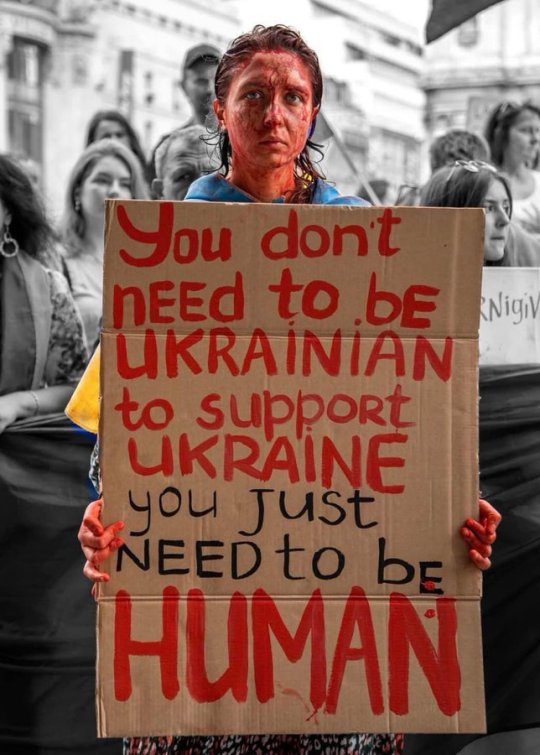
119 notes
·
View notes
Video
youtube
^^^ Almost exactly a year ago, we saw one of the most impressive moments in the history of the internet featuring one of the most impressive heads of state in modern history.
Wars don’t go away because people in third countries get bored with them. Ukraine needs our support today as much as it did on 24 February 2022.
Putin is still a dangerously delusional autocrat who has broken international law in a big way just because he felt like it. And having started Europe’s biggest war since 1945, he certainly can’t be trusted to uphold any future agreements. He believes he’s the 21st century Peter the Great; though the original Peter would probably cringe at the suggestion.
The only outcome that can result in peace in Europe for the next few decades is for Putin to be pushed out of Ukraine entirely. Anything less than that leaves the door open to attacks on other neighbors based on flimsy historical pretexts which long ago were superseded by international agreements.
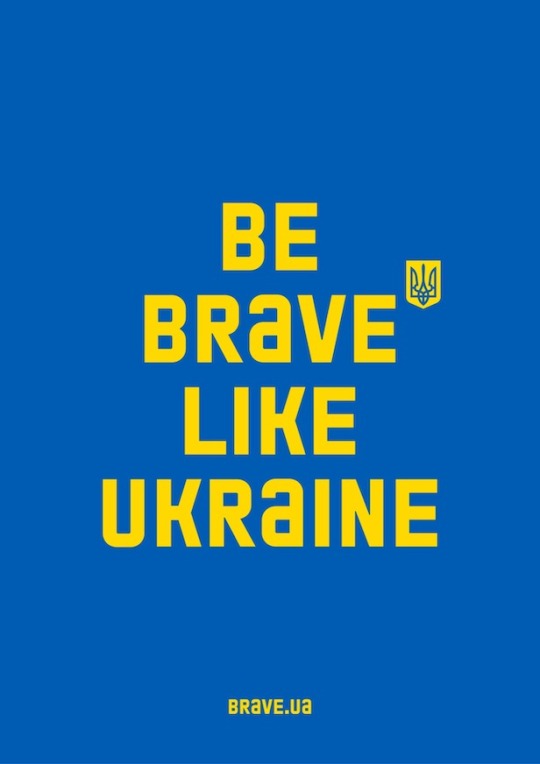
#be brave like ukraine#stand with ukraine#invasion of ukraine#vladimir putin#war criminal#1st anniversary of russian aggression#volodymyr zelenskyy#mykhailo podolyak#denys shmyhal#andriy yermak#davyd arakhamia#володимир зеленський#михайло подоляк#денис шмигаль#андрій єрмак#давид арахамія#будь сміливим як україна#вторгнення оркостану в україну#владимир путин#путин – это лжедмитрий iv а не пётр великий#путин - военный преступник#київ#україна переможе#слава україні!#героям слава!
9 notes
·
View notes
Text
My thoughts on Ukraine and ESC
I wish all the best of love and hope for Ukraine, their song is fine, but I wouldn't want them to win eurovision out of pity or sympathy. Not to mention Ukraine is literally a warzone right now, even if the fighting would be over by this time next year I doubt they would have the money or ressources to hold a eurovision show.
I'm sure they will do well in the show and that they will have a lot of support, but politics is not why I watch eurovision.
Stay strong Ukraine, be brave and have hope.
#eurovision#eurovision 2022#esc#esc 2022#eurovision song contest#esc ukraine#pray for ukraine#stay strong ukraine#be brave like ukraine
10 notes
·
View notes
Text
Glory of Ukraine 🇺🇦
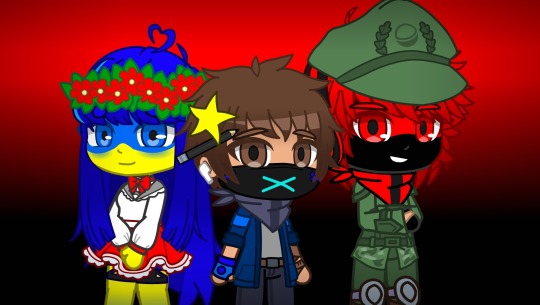
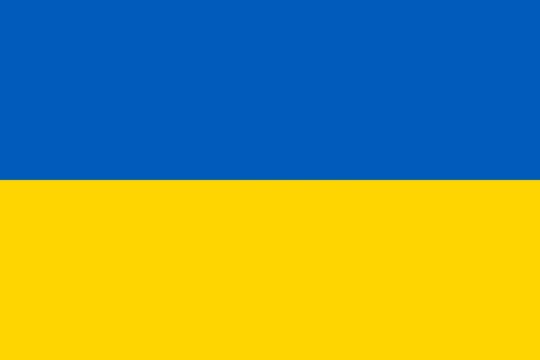

Enjoy your like it!💙💛❤️🖤
#artist on tumblr#Ukraine#Ukrainian Insurgent Army#blue and yellow#red and black#save Ukraine#gacha#gacha club#support Ukraine#country#countryhumans#be brave like ukraine#peace with Ukraine#stop wars#no wars#stop putin now
1 note
·
View note
Text
pet peeve of the day: when foreign companies use themes of current war to appeal to ukrainian consumers
#dariatalkin#''[ukrainians] are so brave and strong uwu JUST LIKE OUR PRODUCT''#Donate to our army first then we'll talk#dumb westerners#war in ukraine
12 notes
·
View notes
Text
I emailed my us congressman for the first time just now! (Yes I know phone calls are better, but I did at least write my own message without any form.)
#I rarely disagree with anything he does that’s why it’s a first#he’s one of the dems against sending certain munitions to Ukraine though so I Urged Him To Reconsider#look this was likely a futile effort#but was very socially brave for me okay#us politics
3 notes
·
View notes
Text
youtube
Bella Ciao - пісня партизан / Белла Чао українською / Бунька Мирон
#ukraine#ucraina#bella ciao#Україна#loro possono cantare bella ciao. non come quella cagata di serie#they can sing bella ciao because it's a song of resistance not the bullshit from la casa de papel#like. italy is a shitty country where people have lost their -metaphorical- balls and it shows in the way they react to#the war in ukraine. with all this bullshit abstract peace complaints#but there was a time ppl were brave and united and that song is from that time
0 notes
Text

This is a Google translation of this article. Please share as it gives personal perspective to Mariupol and the dire situation still ongoing there and in the rest of Ukraine to English speaking audiences.
The children were anesthetized before they died. Confession of Andrey Serbin - a doctor from the Left Bank of Mariupol
Andrei Serbin is 27 years old, he is an anesthesiologist at the Mariupol Hospital No. 4 in the Levoberezhny District. On February 24, the day of the full-scale military invasion, the man arrived at his department and left it only on March 21. During the first week of the war, until the left bank of Mariupol was cut off from the city, doctors came to work.
But in early March, two surgeons, two traumatologists, and two anesthesiologists remained in the operating room. Andrew was among them. It was they who performed dozens of operations, assisted hundreds of civilians on the Left Bank. Hospital No. 4 and the maternity hospital were the only medical institutions in this part of the city. How doctors managed to fulfill their duty so that there were more survivors than those who died - in Andrei's story for Svoi .
Endless cold
We remained doctors in a hospital isolated from the world and did our job. That's all. This is not heroism, but circumstances. The first wounded came to us on 25 February.
There was no heating at the end of February. And on March 3, glass fell down. Almost along the entire northern facade. There was no electricity anymore. Plus it's getting colder outside. All this led to the fact that in our room there was no more than 4 degrees of heat.
We could not afford any heaters, because the electricity was from a diesel generator. There was very little diesel fuel and it had to be saved. The hospital had a generator before the war, we burned the pre-war stock of diesel fuel in two days. While gas stations were still functioning, the hospital administration bought diesel fuel in the first days, then the military brought it to us three or four times.
The patients, having recovered, remained in the hospital. They refueled the generator, monitored its smooth operation. But on March 21, when we were leaving, the chief medical officer said: "The diesel fuel is left for 3-4 hours of generator operation."
There were two duichiks (fan heater, - author) for the whole hospital. They stood in the operating rooms and were turned on only when the operation was in progress. The windows in the hospital operating rooms flew out immediately after the first arrivals, so we moved to the pre-operative rooms - these are more or less safe rooms that corresponded to the two-wall rule.
Nevertheless, there were several episodes when something flew so close in the middle of the operation that our doors opened with a characteristic roar.
Because of the cold, we put on all the clothes we had. And on top - covid overalls (before the war, covid patients were treated here). Firstly, to protect things from blood, vomit and other biological fluids, which absolutely everything was stained with. Secondly, they seemed to be more warm.
However, staying in operating rooms for a long time, they froze so that doctors and junior medical staff went into an uncontrollable state. It was hard for everyone. Women could not stand it, went somewhere, wrapped themselves in a blanket and sat, trying to keep warm. So it was, if, of course, the situation in the operating room allowed. The first time we warmed up in Tokmok, March 23.
On the brink of starvation
Somewhere before March 2, shops were still open and it was possible to jump out at the risk of life and grab something lying around that had no nutritional value, like chips or olives, from the empty shelves of the ATB.
On the first day we went on a short trip and bought four loaves of bread. We stretched this bread right up to mid-March. Then there was no more bread.
The hospital had a catering unit with food supplies. This food was divided into compartments and cooked in multicookers while the operations were going on, the generator was turned on and the light was on. The food, of course, was exceptionally budget and very dietary.
Added to the limited food supply was the problem of preparing a large amount of food. In our department there were only two multicookers, and we had to cook for 20 people. Accordingly, the portions were very modest.
The water for cooking was from a well which was a big plus. The well, whose pump was powered by solar panels, was a few kilometers from the hospital. Once every 2-3 days we loaded all the available containers into one of the doctor’s cars and drove for water around the city, which was shelled just constantly
Nobody liked these sorties. When they came to the well, and it was in the courtyard of a private house, there were always huge queues. In fact, it was the one and only place where drinking water could be obtained. Patients were let through without a queue.
People who did not dare to go for water took it from the sewer, filtered it, boiled it, but even after that it smelled and had a nasty aftertaste.
In the tenth of March, we operated on a patient whose relatives brought us a box of chicken necks in gratitude. To be honest, I've never eaten anything like this before. But at that time, the forgotten taste of meat significantly cheered up the team. These necks were boiled, stewed, fried. No one really liked them, of course, but they ate everything.
In general, of course, we did not go hungry. They ate twice a day. But given the cold, the work, the stress, the looming sense of the finiteness of these food supplies and the infinity of this siege, we have developed a very reverent attitude towards food.
More survivors than dead
In medicine, there is the concept of "golden hour", we are talking about the fact that after an injury, a patient needs to be helped as soon as possible. In Mariupol, no one came to us during the "golden hour".
There were people who, with their legs torn off, lay on the street for several days. This continued until they were found and sent to us. There were such blood losses that it is not clear how a person survived after the operation.
I can't say for sure, but it seems that one in five died after helping. For me it's amazing. Because without water and electricity, without a full staff of specialists, in conditions of periodic mass inflows, when there are more victims than medical personnel, there are more people who survived than those who died.
First, the ambulance brought the victims. Then, it seems, on March 7-8 there were heavy shelling, communication with the Left Bank was interrupted, and after that the wounded arrived in a variety of ways.
The victims were brought by some kind of civilian transport, many times civilians were brought by the military. There was some kind of armored vehicle, apparently not military, marked with red medical crosses. She brought a lot of people to us. The locals dragged the wounded on doors and blankets on the ground. Those who had whole legs came themselves.
The day when only one wounded arrived was March 20. Then there was one killed. Doctor Kazantsev. This is one of the old-timers of the hospital. He was over 60 years old. He worked as the head of the infectious children's department. On the morning of March 20, a doctor with a kettle left the shelter of his building to take boiling water to the shelter of the neighboring infectious diseases building, where there were people.
10 meters between buildings. And there was an explosion near the building where Anatoly Borisovich was heading. He was thrown back to his hull. The kettle remained near the funnel. Anatoly Borisovich died from a brain injury. We buried him in a flower bed between two buildings - two meters from his place of work.
The rest of the dead were put in bags and taken out into the yard. They lay under the wall of the hospital. According to the rules, forensic experts must determine what caused the death of each person. Only then can they be buried.
Helping Children Boosts Morale
For all the time there were about 15 affected children. The worst thing is traumatic brain injury. Our hospital didn't specialize in neurotrauma, so we didn't have neurosurgeons.
I remember the first girl well. Anya. There was an explosion, the car wheel was thrown away from the car and hit the girl on the back of the head.
Everyone immediately began to take care of the child. And one of our young traumatologists performed a decompression craniotomy. The young traumatologist performed an operation that is not at all included in his area of professional competence. It is exactly the same as if the therapist removed the appendix.
There was a difficult recovery period after the operation. For five days the girl was on a ventilator. Almost all devices work from the network. Of course, there is no electricity. But we had five battery devices. While the generator was running, we charged them. When one device was discharged, we quickly switched the girl to another, and so constantly. This is an absolutely extraordinary situation.
Then we were able to wean Anya off respiratory support, she was breathing on her own. And on March 18, show signs of neurological recovery. And on March 21, she regained consciousness and could even maintain minimal contact at the yes-no level. We were very proud that we were able to save her.
When Anya was still on the ventilator, the next child was admitted to us. 6 years. He also had a head injury. After the operation, he recovered very well neurologically. And then I saw in Mariupol publics his photo with his grandmother. They stayed in the city.
Our help to children, their recovery after operations in such conditions - these are the episodes that raised our morale.
Unfortunately, there was something else. Many times they brought dead children. And it was even worse when the children came to us alive, and we could do nothing to help
There is the concept of "triage" - medical triage of patients. There are categories of patients who are not being helped: agonizing, extremely severe, with a high proportion of those who will not survive surgery. It is considered wrong to do them in the first place, since someone with a severe injury, but with a high chance of surviving, may not receive medical attention and die. It was difficult to make such decisions: "That's it, we are no longer providing assistance to this patient."
Mom, grandmother and a one-year-old child went out after the shelling into the yard to cook food. A projectile has arrived. All have a head injury. Mom just got scratches. My grandmother had a rather severe trauma to the facial skull, her eye was seriously injured. But a one-year-old boy was hit in the head by a fragment. Through the frontal part there was an inlet-outlet. They brought him back alive. The contents of the skull were outside. Mother, of course, refused to understand that there was no chance. We anesthetized the child. Unfortunately, this is where our help ends. The 1-year-old child died 15 minutes after admission to the hospital.
There was an episode when two children were admitted - 10 and 16 years old. As far as I understood, they were not relatives, but they were brought from the same place with severe head injuries. We couldn't help them. Just anesthetized. They put it on top of each other. Covered with a blanket. And that's it.
Medicines were mined
The stock of medicines in the hospital, of course, was. When the seriousness of the situation began to reach us and pharmacies stopped working, people with higher medical education gathered in groups, took something iron with them, opened pharmacies located on the territory of the hospital.
The drugs for pain relief were the first to run out, there were big problems with infusion solutions. There was no blood. And we did the transfusion only when we realized that without blood, the patient would definitely die. By March 20, we had practically nothing left of the medicines with which we could provide assistance.
Information vacuum
They did not think about evacuation, they dreamed about it. But since mobile communication was lost on March 5-6, we were in an information vacuum: we didn’t know about the “green corridors” or what was happening at all.
Plus, we regularly had the wounded, who were brought here with such a typical story: "We heard there, someone said that there would be a" green corridor ", we went. We came under fire." And here, please, someone has a hole in his stomach, someone's arm was torn off. Someone was killed on the spot.
This vacuum concerns not only our hospital, but the entire Left Bank.
Number 16 someone caught a connection at night - one "stick" of Kyivstar on the fourth floor. And from that moment the pilgrimage began there. Everyone got up, put their hand out the window, tried to catch the connection, inform the relatives who had already buried us several times.
And when we got a connection, exclusively by telephone, we began to learn from relatives more or less relevant data at that time, that there really are approximately safe exit routes. We thought about evacuation.
They intended to leave purposefully for Ukraine. None of us wanted to stay to work, live in the "DPR" or Russia (On April 7, it became known that the Russian invaders had taken the staff and patients of the Mariupol city hospital No. 4 to the occupied territory of Ukraine. The fate of the people - unknown - Our own )
The driver said: "Andryukha, jump out!" And I understood why
On March 18, our quarter was shelled very tightly and precisely. Across the street, a polyclinic caught fire. She burned so cheerfully and intricately that we looked at her for two days and thought: "What if we catch fire?"
And this idea that a fire might not just get in, but might start, made us sharply consolidate the efforts of everyone in the direction of leaving.
There were several unsuccessful attempts to leave. Unsuccessful in the sense that we did not leave the Left Bank. Now I understand that it is better to consider them successful, because each time we returned in the same composition as we left. Not everyone is so lucky.
The main problem is that the "green corridor" began at the exit from Mariupol. He had to be reached. The left-bank district of Mariupol is closer to Novoazovsk and the side of the so-called "DNR". We also needed the opposite exit of the city, the western one, and in order to get to it, it is necessary to cross Mariupol .
A typical evacuation attempt in Mariupol from the Left Bank looked like this: people drove to the bridge, saw barricades from cars, could try to bypass them. Judging by the number of cars shot down near the barricades with corpses inside, for many, the evacuation route ended there.
A successful attempt for us was on March 21. We lined up in a column of seven cars of employees. The day before, a friend of our colleague left and told the route.
It was necessary to drive along Pashkovsky Street to the Embankment. Run into a minefield. Before him, turn off and continue to go along the "partisan paths" with jumping over the curb, bypassing the twisted concrete blocks, passing through the eastern checkpoints of "Azovstal", which are broken into trash.
There is a six lane road. There was not a single square meter on it, on which a huge upturned concrete block would not lie. The road ran through "Azovstal", which was beaten non-stop. Literally.
In one place it was necessary to go along the tram tracks, turn off them to get to the bridge. Between the barricade of cars and the railing of the bridge there was a gap the width of an ordinary passenger car, even without mirrors. Those who had them folded, they were folded, the rest went as they were. We leaked into this crack with the whole column.
In one place they ran into a fallen pole, on which there was a trolleybus transmission line. And this cable, on which everything is fixed, hung across the road. Passing by, the car will not only hook him, it will vomit something on its way.
I was in the first car. We drove up, we understand that it is impossible to go around, and the driver says: "Andryukha, jump out!" I understood why. He jumped out, raised a metal cable over his head and let the entire column through. He threw the cable, quickly ran to our car. We drove at low speed so that I could jump into the car on the move.
Our tank stood at the entrance to the central checkpoints, and next to it was a funnel two lanes wide and waist deep. Cars could not pass on the road. Drivers, jumping over the curb, drove between the funnel and the tank. So we jumped out to the central checkpoints. There is another bridge. By this time it had already been destroyed.
But there was another one nearby, he was always called the Old or Hunchbacked. To be honest, in almost four years of my life in Mariupol, I have never seen anyone driving on it. I thought you could only stand on it with a fishing rod, since nothing heavier than a cart could drive over it. But we passed.
From that moment on, a relatively safe route began. And then a typical story for me, twice a refugee: checkpoints, inspections, communication with pleasant people with machine guns. At Russian checkpoints, we were asked to undress: they looked for tattoos and traces of weapons.
In our column there was a car that did not have a full tank. And we all knew for sure that we would tow it. Gasoline ran out 20 kilometers to Mangush. We towed the car to Tokmak, but no one had any idea that you should not leave if you did not have a full tank of gasoline.
Fuel delivery was organized in Tokmok. We refueled and drove to Zaporozhye. On March 26, I was in the Dnepropetrovsk region. March 30 went to get a job as a doctor.
We left, but our patients stayed
Have I changed? In Mariupol, it was necessary to work, save, make decisions, fight, warm up, in the end, there is something. And I lived, worked, was constantly part of the operational teams and tried not to think about anything like that. Another thing is thoughts after Mariupol.
The next day after our departure, we arrived at the fourth floor of the hospital, where I was almost all the time along with other employees. This explosion killed several doctors.
The situation that we left and our patients stayed is very painful. Each doctor establishes an emotional connection with the patient; in the process of treatment, he is no longer a stranger to you.
We persuaded ourselves that we had done everything we could, especially in the conditions that had developed: “Another day or two and we will simply be left with nothing. There will be no suture material, no alcohol for treatment. No funds to provide assistance.” And yet we were all crippled that we were leaving patients and leaving. Doctors don't do that. Usually. But I cannot blame myself for the fact that we made the decision to run away from Mariupol. Because it's normal and right. But everyone who left with me has some degree of doubt about the correctness from the ethical side.
#ukraine#war in ukraine#russian invasion#russia ukraine war#save mariupol#mariupol#arm ukraine now#save ukraine#stop russia#stop russian aggression#be brave like ukraine#long reads
12 notes
·
View notes
Text
This spring is completely different for us.But its time to sow.Ukrainian farmers have to work in the field in bulletproof vests.But the love to their job is more than the fear of russian bullets and missiles
Fuck you russia🖕
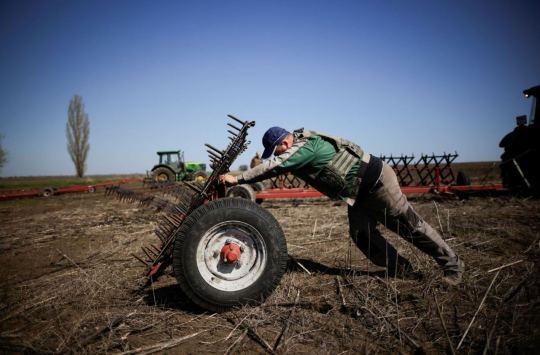
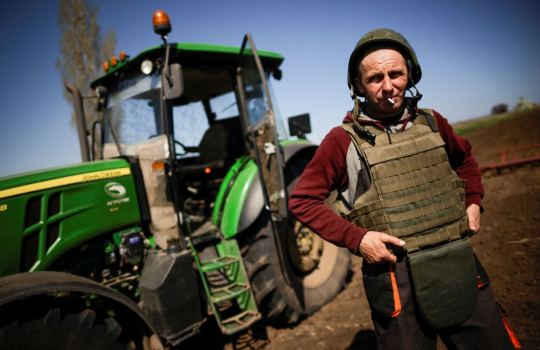
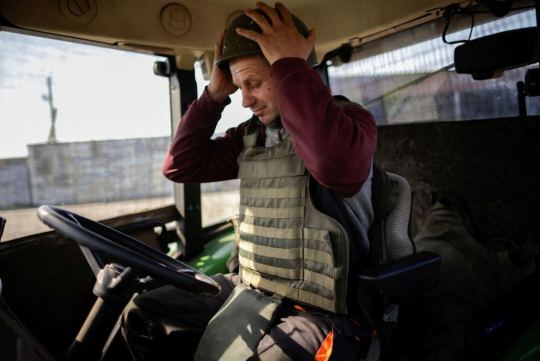
Слава Україні 💙💛
#ukraine#war in ukraine#russian invasion#russian agression#wewillwin#we will resist#we will win#glory to heroes#glory to ukraine#pray for ukraine#pray for ukrainians#spring#be brave like ukraine#слава україні#слава нації#героям слава
265 notes
·
View notes
Text
freedom flows in our veins. we are fighting as hard as we can, without giving up. we don't allow anyone to destroy our country and murder our people. we are protest against all injustice. we are the true source of power in our country. we are an invincible people. we are UKRAINIANS.

14 notes
·
View notes
Text
Display the blue and yellow. 🇺🇦
Thursday is Ukraine Independence Day. The country kissed the Soviet Union good-bye on 24 August 1991.
Putin's invasion is a belated war of independence for Ukraine. The country has been charting an increasingly democratic course and Putin wants to stomp it out of existence for this un-Russian behavior.
To remind our friends and neighbors of Ukraine's need for support against a totalitarian human rights abuser, Thursday would be a good time to display the blue and yellow of the Ukrainian flag.
If you have a Ukrainian flag, be sure to display it. Chicago has flown the Ukrainian flag at the Daley Center next to the Picasso statue.

You can create a virtual flag if you wish for your phone or desktop. Here are the official color codes.

These planters were spotted in Hoboken, New Jersey a few weeks ago.

There are numerous ways to improvise.
These sticky notes are not the exact colors, but they're close enough to get the message across. If there's a Russian embassy or consulate in your city, this is a cheap and quick (and harmless) combo you can leave on their gate.
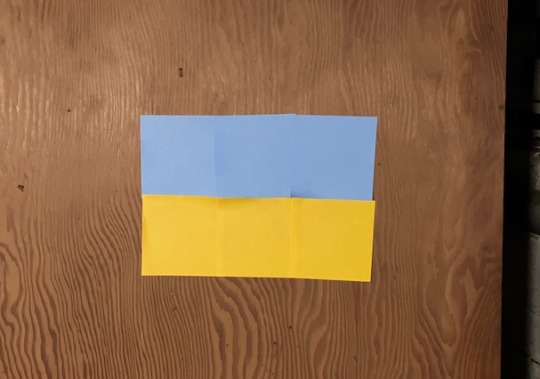
Blue and yellow chalk, harmless like the sticky notes, is another option.
Of course blue and yellow clothing or combinations of clothing let you take your message wherever you go.
The point is to show support for Ukraine and to encourage others to do so as well.
Wars don't end because people in third countries get bored with them. And this war is a clear struggle between democratic values and fascist repression. To some degree the same sort of struggle is playing out internally in many countries. In Eastern Europe it exploded into a major conflict when a 21st century Hitler began an unprovoked and illegal war to wipe out a peaceful neighbor.
Ukraine is fighting for what we believe in. A defeat for Russia would be a setback for the international far right; and that includes the likes of Donald Trump and Tucker Carlson.
#invasion of ukraine#ukraine independence day#blue and yellow#stand with ukraine#russia's war of aggression#display support for ukraine#be brave like ukraine#defeat fascist russia#genocide#владимир путин#путин хуйло#бей путина#руки прочь от украины!#путин – это лжедмитрий iv а не пётр великий#союз постсоветских клептократических ватников#нет войне#вторгнення оркостану в україну#геть з україни#україна переможе#деокупація#зеленський виявився крутішим за путіна#будь сміливим як україна#україна – круто!#разом – до перемоги!#день незалежності україни#слава україні!#героям слава!
2 notes
·
View notes
Text
Congratulations and mayor respect to Ukraine for wininng Eurovision 2022
May this victory bring hope to all of Europe and be a massive pain in Putin’s ass.
#esc#esc 2022#eurovision#eurovision 2022#eurovision song contest#esc ukraine#kalush orchestra#stefania#stay strong ukraine#be brave like ukraine#congratulations
19 notes
·
View notes
Text
Fascist and pro-Putin propagandists Tucker Carlson and Elon Musk are trying to exploit the fact there're no good English sources on Gonzalo Lira to pass off their narrative that he's some brave dissident persecuted by a cruel tyrannical Zelensky.

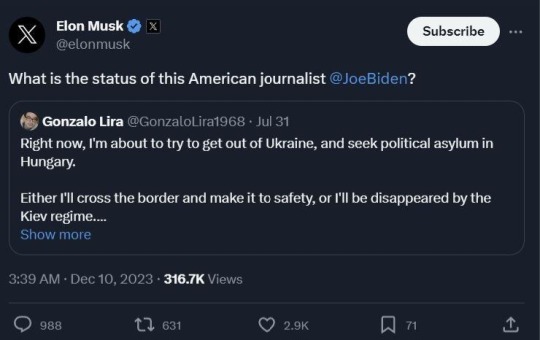
Gonzalo Lira isn't a journalist. He's a YouTuber. He wasn't arrested for criticizing the Zelensky government (he's been doing it for years), he was arrested on suspicion of collusion with the Russian government.
The fact he's been spreading pro-Russia propaganda and disinformation since the before the war, appeared on Russian state-owned networks, and has a Russian official pleading on his behalf, makes me suspect the same thing.
As for the torture, that is just a straight up fabrication. No source for it whatsoever.
I know the Ukraine war has been bumped off the radar of a lot of people by newer flashier conflicts, but it's still extremely important to support Ukraine and the Ukrainian people against Putin's invasion and his many cronies like Tucker and Elon.
#ukraine#ukraine war#russia#putin#tucker carlson#elon musk#gonzalo lira#propaganda#fascism#politics#war#edit: the ukraine tag is trending on tumblr that's good
894 notes
·
View notes
Text
The Best News of Last Week - January 15, 2024
🎊 - As we embark on another journey around the sun, I am thrilled to bring you the first newsletter of the year, packed with inspiring, informative, and sometimes downright amusing stories.
1. Marijuana meets criteria for reclassification as lower-risk drug

Marijuana has a lower potential for abuse than other drugs that are subjected to the same restrictions, with scientific support for its use as a medical treatment, researchers from the US Food and Drug Administration say in documents supporting its reclassification as a Schedule III substance.
2. South Korea passes law banning dog meat trade

The slaughter and sale of dogs for their meat is to become illegal in South Korea after MPs backed a new law. The legislation, set to come into force by 2027, aims to end the centuries-old practice of humans eating dog meat.
3. After 20 years in a tiny cage, these 'broken bears' are finally feeling the grass beneath their paws
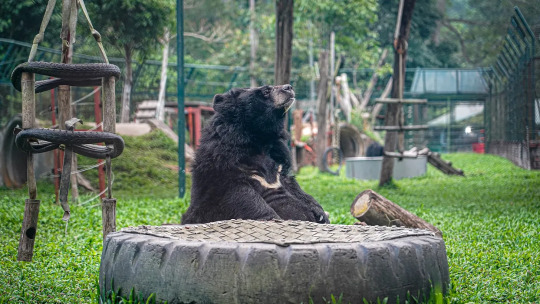
These bears, termed "broken bears" due to physical and psychological trauma from years of abuse, are treated at the Tam Dao rescue center with individually tailored diets, physiotherapy, and medical care. The bear bile trade, which involves extracting bile for traditional Asian medicine, has been illegal in Vietnam since 2005, but a black market still exists.
4. France just got its first openly gay prime minister.
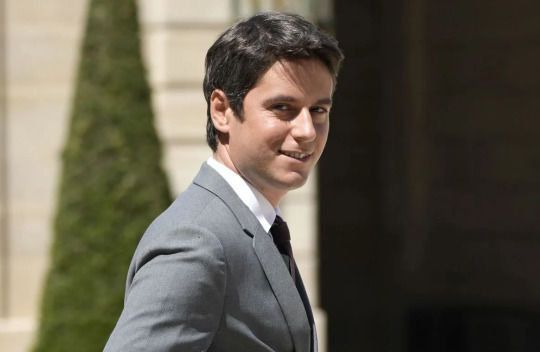
Gabriel Attal is France’s youngest-ever prime minister at age 34 and the first who is openly gay.
5. Australian ‘builders without borders’ repairing war-torn homes and schools in Ukraine

Manfred Hin, a 66-year-old builder from Townsville, Australia, spent most of 2023 volunteering in Ukraine to rebuild homes and schools damaged by Russian attacks. Having contributed to over 50 house and a dozen school renovations, he worked with Ukrainian charity Brave to Rebuild, mentoring young volunteers and sourcing three tonnes of donated tools.
Inspired by Hin's story, Tasmanian carpenter Hamish Stirling also joined the efforts, learning Ukrainian, traveling to Europe, and volunteering for three months to help rebuild homes.
6. The age-standardized death rate from cancer has declined by 15% since 1990
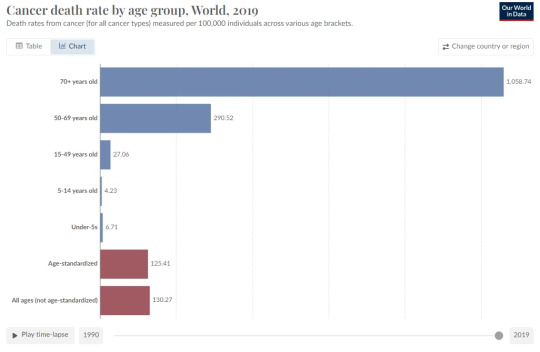
The age-standardized death rate from cancer declined by 15%
Cancer kills mostly older people – as the death rate by age shows, of those who are 70 years and older, 1% die from cancer every year. For people who are younger than 50, the cancer death rate is more than 40-times lower (more detail here).
7. Germany Reached 55% Renewable Energy in 2023
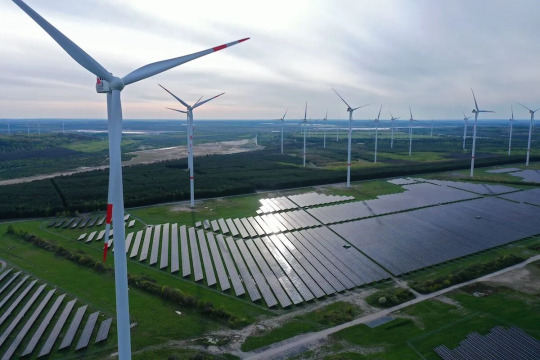
In 2023, 55 percent of Germany’s power came from renewables — an increase of 6.6 percent, according to energy regulator Bundesnetzagentur, reported Reuters. Europe’s biggest national economy has a goal of 80 percent green energy by 2030.
---
That's it for this week :)
This newsletter will always be free. If you liked this post you can support me with a small kofi donation here:
Buy me a coffee ❤️
Also don’t forget to reblog this post with your friends.
500 notes
·
View notes